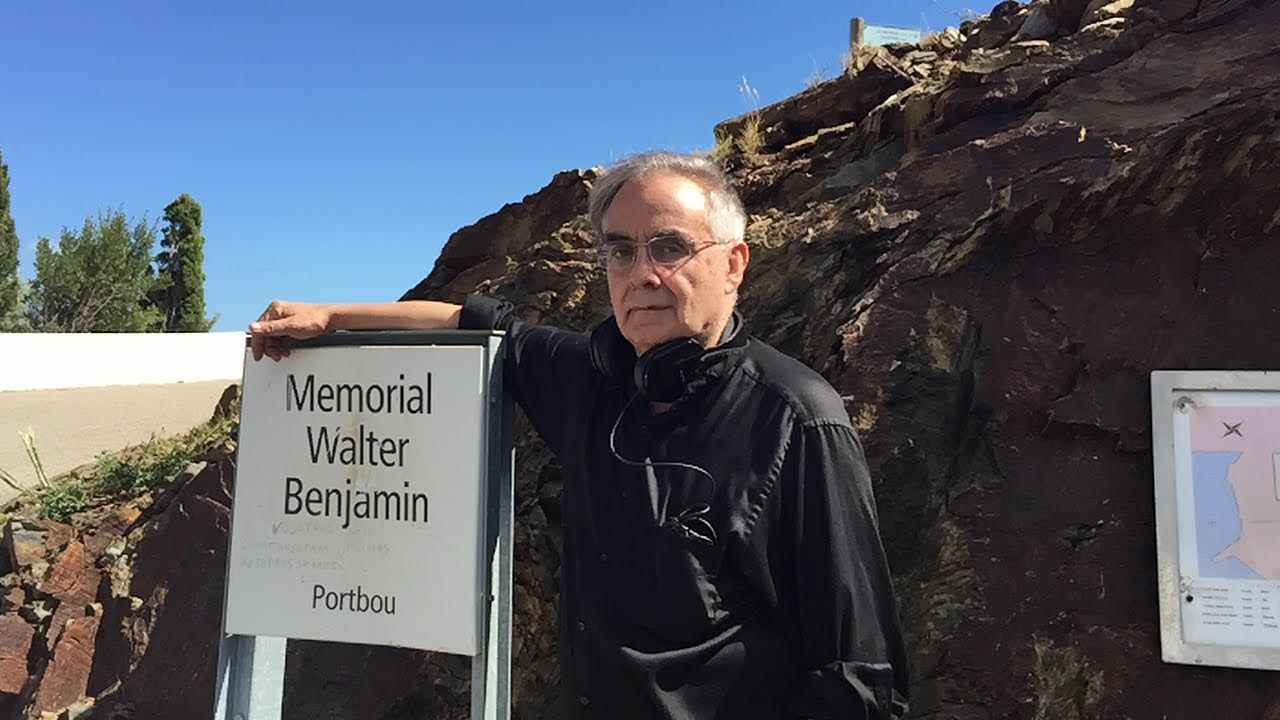I want to thank John for including me in this commemoration of Loren, alongside these other fine comrades. It’s an honor to be invited to consider and document all the ways that Loren influenced our lives and left us changed as a result. It feels important to do so. Because as we all know, there are friends, and there are close friends. But friendship with Loren really was something quite special.
Others may remark on the fact that though Loren received his doctorate from MIT, he never taught at the college level. But in fact, Loren was always teaching, he never stopped teaching. Teaching was his calling, and only now, after his death, am I realizing how indelible his influence on me was, and the extent to which all he taught me over the years influenced the person I’ve become.
I first met Loren in 1985, when I arrived at the Harvard Center for European Studies, where—as has been said—Loren was the librarian. It became my habit, on Monday mornings, to sit with Loren as he went through all the books that had come in from publishers over the weekend, and as he unwrapped the daily newspapers from around the world that had also arrived.
And can we take a moment to speak about this library? It was just one room, but it was Loren’s creation, Loren’s baby: Stanley Hoffmann gave him carte blanche to run the place to his own specifications and in the process fended off the growing concern from the gendarmes of Widener Library, who’d inquire periodically: “Who ordered these books?” From time to time, an outsider—a graduate student or the odd undergraduate, would wander into the library for a few hours and then spontaneously blurt out: “This library is unbelievable!”
Anyway, there we were one Monday morning as he was unpacking the weekly haul of books, and we were discussing what we’d done over the weekend. I don’t remember what I’d done, but Loren said, as I recall, he’d read a fine new biography of Charlie Parker, a monograph on twelfth-century Sufi mystic poetry, and a series of interviews with members of the 1962 San Francisco Giants (the great team of Mays, McCovey, and Marichal).
With some confusion, since I knew he was running a bit behind in finishing his doctorate—on American politics—I said, but Chief [we called each other “Chief,” in honor of a CES colleague who had the odd habit of calling everyone “Chief”], I thought you were researching for your dissertation? “I am, Chief,” he said. “I am.”
That was Loren to the core: No field of human endeavor is unconnected with all the others, a bracing and redemptive antidote to the tendency of many academics—including some of the graduate students and junior faculty at the CES—to regard their field as separate and self-contained from the history or cultural realities of other periods or places, a niche to be carved out and protected. Loren was an internationalist—and an optimist of a special kind—who was ever-alert to patterns or resonances across centuries or continents that escaped lesser minds.

A few years later, we met up in Andalucía, where we both happened to be traveling; our paths crossed in the city of Ronda. Loren was excited to be in Ronda, since it was one of the epicentres of flamenco music and dance, as well as a bane to Franco during the civil war. We searched out and found some of the old flamenco bars, but they’d all been transformed into tourist traps for the endless procession of foreigners who’d arrive by motorcoach and spend an hour in Ronda before traveling on to the next pitstop. To Loren’s horror, each of these places was playing the most annoying sort of Euro-pop, and the waiters were impervious to Loren’s entreaties to put on something more historically accurate. We got up and left several cafes—I don’t recall if we ever had lunch that day—but eventually we did stumble across a tiny storefront, a shrine to one of Ronda’s homegrown flamenco legends—Aniya La Gitana—whose proprietor spoke to us for hours about the city’s extraordinary history of music and anti-fascist resistance.
This was the sort of experience Loren relished and was uniquely skilled at orchestrating. In a way, Loren invented social media, well before the tech world caught up. He would meet people—often after having sent them something he’d written—and then delve into their own network of contacts for other kindred spirits, sometimes following up with a visit, and in the process creating a kind of world-wide web that sustained his unquenchable intellectual appetite and gave him some measure of hope for a revolutionary future.
In his later years, Loren would stop by my house in Brooklyn periodically and hold court in our living room. “Mrs. Chief,” as he called my wife at the time, and the three little Chiefs would drift in and out. I wonder sometimes what the little Chiefs—now considerably older—took from these encounters with this itinerant radical intellectual, who’d regale them with stories of his journeys to the factory towns of South Korea, or the working-class suburbs of Barcelona, or the banlieues of France.
What I hope they derive is that they can find intellectual and spiritual sustenance in the most unlikely places, that around the world there are comrades and kindred spirits you don’t know yet—and who have never heard of you—but it’s your duty to go find them. And by finding them, and sitting with them, and listening to their struggles, and making their struggles your own, you’re committing an act of revolutionary solidarity with working people the world over. There may be no better way to contribute—in some modest measure—to the emancipation of our beleaguered species.